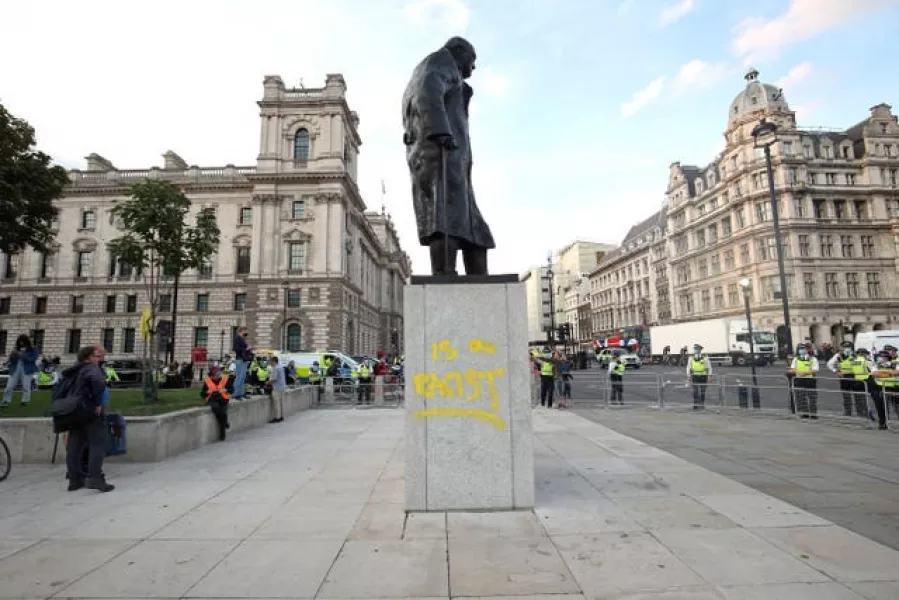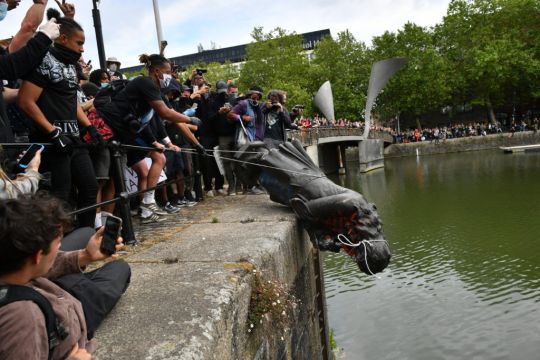Britain should not try to edit or censor its past, the UK Communities secretary has said, amid proposed amendments to laws to protect statues, monuments and other memorials.
Robert Jenrick said any decision to remove heritage assets in England will require planning permission and a consultation with local communities, adding he wanted to see a “considered approach”.
He wrote in the Sunday Telegraph: “Our view will be set out in law, that such monuments are almost always best explained and contextualised, not taken and hidden away.”
The plans to change the legislation, to be revealed in Parliament on Monday, follow the toppling of a statue of slave trader Edward Colston last year and a wider discussion on the removal of controversial monuments.
Mr Jenrick said he had noticed an attempt to set a narrative which seeks to erase part of the nation’s history, adding this was “at the hand of the flash mob, or by the decree of a ‘cultural committee’ of town hall militants and woke worthies”.
Writing in the paper, he said: “We live in a country that believes in the rule of law, but when it comes to protecting our heritage, due process has been overridden. That can’t be right.
“Local people should have the chance to be consulted whether a monument should stand or not.
“What has stood for generations should be considered thoughtfully, not removed on a whim or at the behest of a baying mob.”

The death of George Floyd while in the custody of police in Minneapolis sparked protests across the world, with the Colston statue dumped into Bristol Harbour and a memorial to Sir Winston Churchill vandalised with the words “is a racist”.
Speaking last June, Prime Minister Boris Johnson said: “The statue of Winston Churchill in Parliament Square is a permanent reminder of his achievement in saving this country — and the whole of Europe — from a fascist and racist tyranny.
“It is absurd and shameful that this national monument should … be at risk of attack by violent protestors.
“Yes, he sometimes expressed opinions that were and are unacceptable to us today, but he was a hero, and he fully deserves his memorial.”







